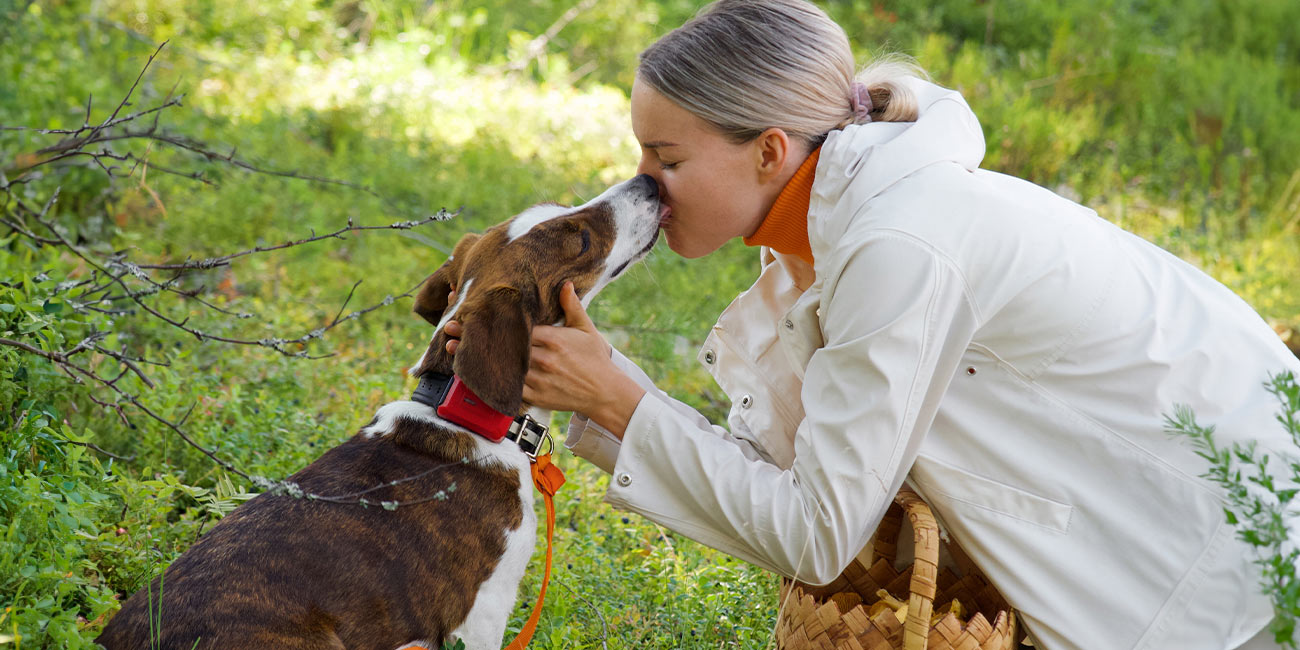Signs of Dental Problems in Dogs and Cats: What to Look For and When to Act
In this article:
We all want our pets to lead healthy, happy lives. While we often focus on providing the best nutrition, exercise, and regular check-ups, one aspect of pet health that can easily be overlooked is dental care. Just like humans, cats and dogs are susceptible to dental issues that, if left untreated, can lead to significant health problems. Recognizing the signs of dental problems in dogs and cats is crucial for ensuring their overall well-being.
Why Dental Health Matters for Your Pet
Dental health in pets is more than just keeping their teeth clean; it’s about preventing pain, infection, and even more serious conditions like heart disease and kidney problems, which can arise from untreated dental issues. Regular dental care helps to maintain your pet’s quality of life and can extend their lifespan.
Common Signs of Dental Problems in Dogs and Cats
1. Bad Breath (Halitosis)
One of the most obvious signs of dental problems in dogs and cats is bad breath. While it’s normal for pets to have some odor in their mouths, particularly after eating, consistently foul-smelling breath could indicate a buildup of bacteria, gum disease, or other dental issues. If your pet’s breath smells worse than usual, it’s worth investigating further.
2. Difficulty Eating or Dropping Food
If your dog or cat suddenly seems to have trouble eating, is dropping food from their mouth, or is chewing on one side, it could be a sign of dental pain. Pets may avoid eating altogether or become more selective with their food, particularly if it’s hard or crunchy. Difficulty eating can be linked to painful teeth, inflamed gums, or even loose or broken teeth.
3. Visible Tartar and Plaque Buildup
Plaque is a sticky film of bacteria that forms on the teeth after eating. If not regularly cleaned, plaque can harden into tartar, which is visible as yellow or brown deposits on your pet’s teeth. Tartar can lead to gum disease and other dental problems if not removed. Regular dental check-ups and professional cleanings are essential to prevent tartar buildup.
4. Red or Bleeding Gums
Healthy gums should be pink and firm. If you notice that your pet’s gums are red, swollen, or bleeding, it’s a clear sign of gum disease. Gingivitis, the early stage of gum disease, can progress to periodontitis if left untreated, leading to tooth loss and other serious health issues.
5. Excessive Drooling
While some breeds naturally drool more than others, an increase in drooling can indicate dental problems. Pets with dental pain may produce more saliva as a response to discomfort. If your dog or cat is drooling more than usual, especially if accompanied by other symptoms, it’s time to consult your vet.
6. Pawing at the Mouth or Face
Pets experiencing dental pain may paw at their mouths or rub their faces on furniture or the floor in an attempt to alleviate discomfort. This behavior, especially if it’s new or persistent, can be a sign that something is wrong with your pet’s teeth or gums.
7. Changes in Behavior
Pets in pain may become irritable, withdrawn, or less active. If your normally playful pet is suddenly less enthusiastic or seems uncomfortable, it could be due to an underlying dental issue. Behavioral changes are often a sign that something isn’t right, and dental problems are a common culprit.
When to Seek Veterinary Care
If you notice any of these signs of dental problems in your dog or cat, it’s important to seek veterinary care promptly. Early detection and treatment of dental issues can prevent more serious health problems down the road. Your veterinarian can perform a thorough examination of your pet’s mouth and recommend appropriate treatment, which may include professional cleaning, tooth extractions, or other procedures.
Preventing Dental Problems
The good news is that many dental problems in pets are preventable. Here are some tips to keep your pet’s teeth and gums healthy:
• Regular Brushing: Brushing your pet’s teeth daily with a pet-specific toothbrush and toothpaste can significantly reduce plaque buildup and prevent tartar formation.
• Dental Chews and Toys: Provide your pet with dental chews and toys designed to promote oral health. These can help remove plaque and keep your pet’s teeth clean.
• ProDen PlaqueOff® Powder: Consider adding ProDen PlaqueOff® Powder to your pet’s diet. This natural supplement, available for both dogs and cats, works by breaking down existing tartar and preventing new plaque from forming. Simply sprinkle it onto your pet’s food daily to support their dental health.
• Routine Veterinary Check-Ups: Regular veterinary visits are essential for monitoring your pet’s dental health. Your vet can recommend a dental care routine tailored to your pet’s needs.
• Professional Cleanings: Periodic professional dental cleanings by your veterinarian are crucial, especially for pets prone to dental issues.
Conclusion
By being vigilant and recognizing the early signs of dental problems in dogs and cats, you can ensure that your beloved pet maintains good oral health and enjoys a long, healthy life. Don’t wait until symptoms worsen; consult your veterinarian at the first sign of trouble to keep your pet’s smile bright and pain-free.
Prioritize Your Pet’s Oral Health
Oral health is vital to your pet's overall wellbeing, yet many pet parents face challenges like brushing difficulties or lack of awareness.

Signs of Dental Problems in Dogs and Cats: What to Look For and When to Act
We all want our pets to lead healthy, happy lives. While we often focus on providing the best nutrition, exercise, and regular check-ups, one aspect of pet health that can easily be overlooked is dental care. Just like humans, cats and dogs are susceptible to dental issues that, if left untreated, can lead to significant health problems. Recognizing the signs of dental problems in dogs and cats is crucial for ensuring their overall well-being.
Why Dental Health Matters for Your Pet
Dental health in pets is more than just keeping their teeth clean; it’s about preventing pain, infection, and even more serious conditions like heart disease and kidney problems, which can arise from untreated dental issues. Regular dental care helps to maintain your pet’s quality of life and can extend their lifespan.
Common Signs of Dental Problems in Dogs and Cats
1. Bad Breath (Halitosis)
One of the most obvious signs of dental problems in dogs and cats is bad breath. While it’s normal for pets to have some odor in their mouths, particularly after eating, consistently foul-smelling breath could indicate a buildup of bacteria, gum disease, or other dental issues. If your pet’s breath smells worse than usual, it’s worth investigating further.
2. Difficulty Eating or Dropping Food
If your dog or cat suddenly seems to have trouble eating, is dropping food from their mouth, or is chewing on one side, it could be a sign of dental pain. Pets may avoid eating altogether or become more selective with their food, particularly if it’s hard or crunchy. Difficulty eating can be linked to painful teeth, inflamed gums, or even loose or broken teeth.
3. Visible Tartar and Plaque Buildup
Plaque is a sticky film of bacteria that forms on the teeth after eating. If not regularly cleaned, plaque can harden into tartar, which is visible as yellow or brown deposits on your pet’s teeth. Tartar can lead to gum disease and other dental problems if not removed. Regular dental check-ups and professional cleanings are essential to prevent tartar buildup.
4. Red or Bleeding Gums
Healthy gums should be pink and firm. If you notice that your pet’s gums are red, swollen, or bleeding, it’s a clear sign of gum disease. Gingivitis, the early stage of gum disease, can progress to periodontitis if left untreated, leading to tooth loss and other serious health issues.
5. Excessive Drooling
While some breeds naturally drool more than others, an increase in drooling can indicate dental problems. Pets with dental pain may produce more saliva as a response to discomfort. If your dog or cat is drooling more than usual, especially if accompanied by other symptoms, it’s time to consult your vet.
6. Pawing at the Mouth or Face
Pets experiencing dental pain may paw at their mouths or rub their faces on furniture or the floor in an attempt to alleviate discomfort. This behavior, especially if it’s new or persistent, can be a sign that something is wrong with your pet’s teeth or gums.
7. Changes in Behavior
Pets in pain may become irritable, withdrawn, or less active. If your normally playful pet is suddenly less enthusiastic or seems uncomfortable, it could be due to an underlying dental issue. Behavioral changes are often a sign that something isn’t right, and dental problems are a common culprit.
When to Seek Veterinary Care
If you notice any of these signs of dental problems in your dog or cat, it’s important to seek veterinary care promptly. Early detection and treatment of dental issues can prevent more serious health problems down the road. Your veterinarian can perform a thorough examination of your pet’s mouth and recommend appropriate treatment, which may include professional cleaning, tooth extractions, or other procedures.
Preventing Dental Problems
The good news is that many dental problems in pets are preventable. Here are some tips to keep your pet’s teeth and gums healthy:
• Regular Brushing: Brushing your pet’s teeth daily with a pet-specific toothbrush and toothpaste can significantly reduce plaque buildup and prevent tartar formation.
• Dental Chews and Toys: Provide your pet with dental chews and toys designed to promote oral health. These can help remove plaque and keep your pet’s teeth clean.
• ProDen PlaqueOff® Powder: Consider adding ProDen PlaqueOff® Powder to your pet’s diet. This natural supplement, available for both dogs and cats, works by breaking down existing tartar and preventing new plaque from forming. Simply sprinkle it onto your pet’s food daily to support their dental health.
• Routine Veterinary Check-Ups: Regular veterinary visits are essential for monitoring your pet’s dental health. Your vet can recommend a dental care routine tailored to your pet’s needs.
• Professional Cleanings: Periodic professional dental cleanings by your veterinarian are crucial, especially for pets prone to dental issues.
Remember, a healthy mouth is the key to a happy pet!
By being vigilant and recognizing the early signs of dental problems in dogs and cats, you can ensure that your beloved pet maintains good oral health and enjoys a long, healthy life. Don’t wait until symptoms worsen; consult your veterinarian at the first sign of trouble to keep your pet’s smile bright and pain-free.







